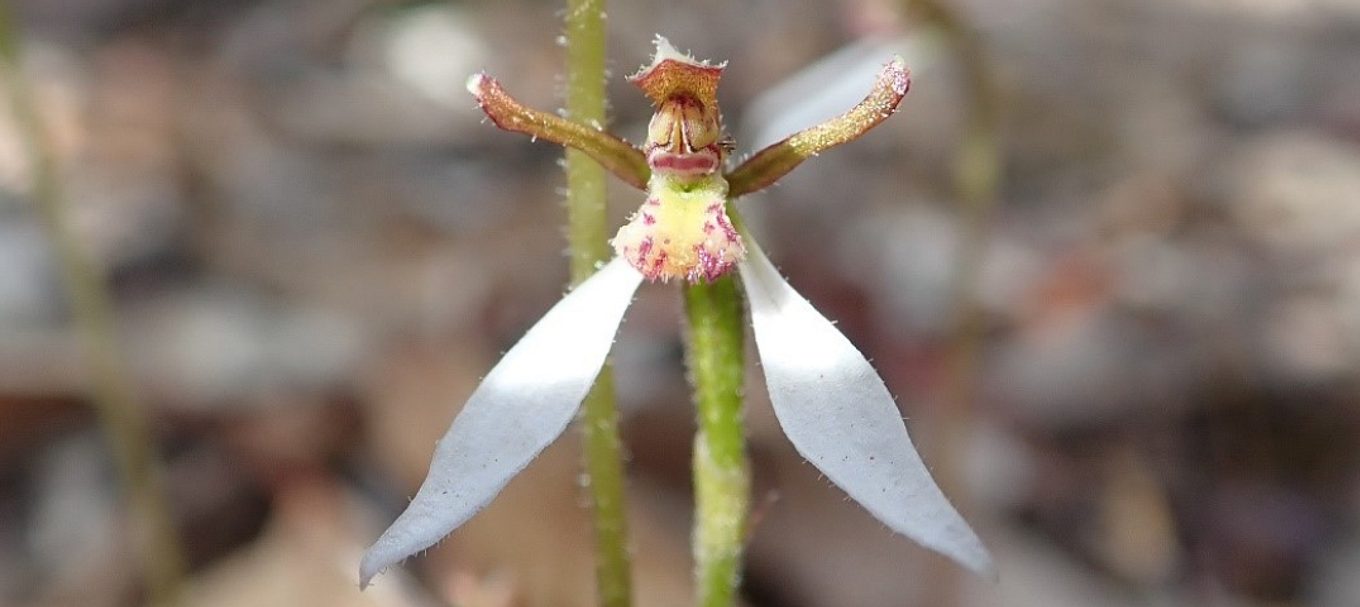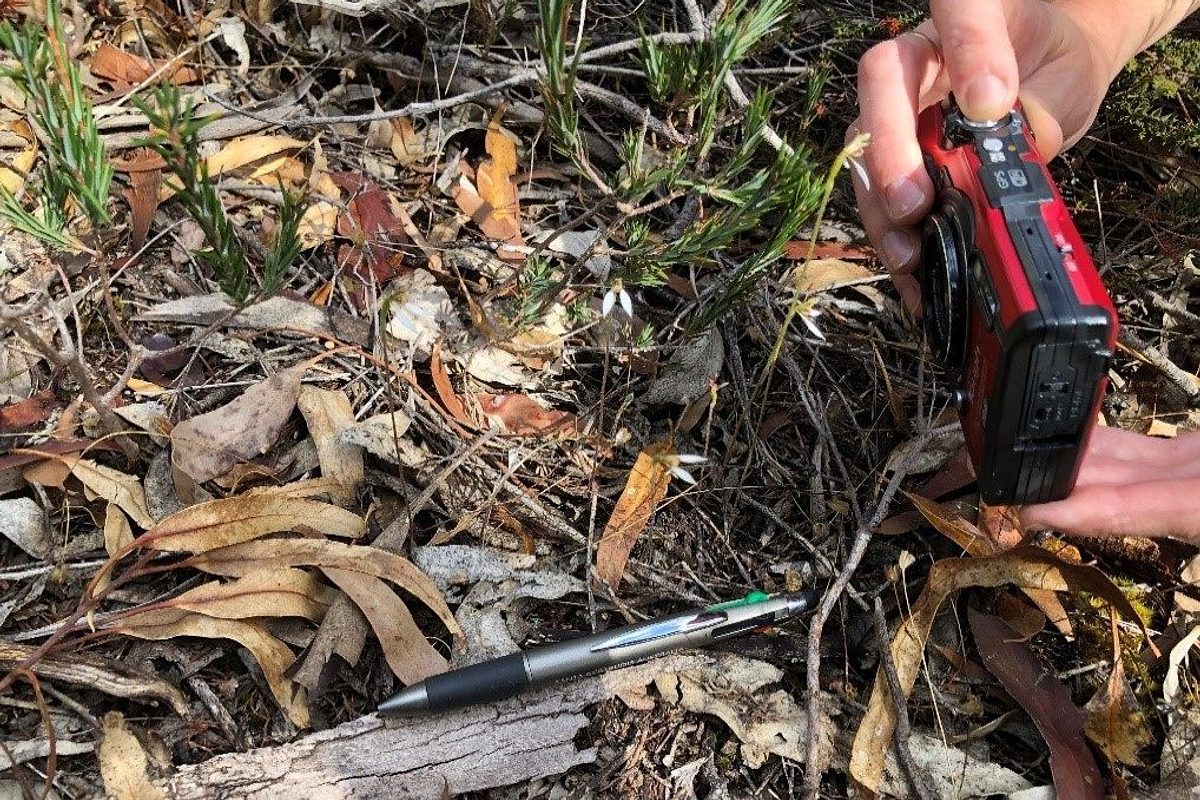
Your guide to the unique autumn orchids blooming in Hale Conservation Park
If you venture into Hale Conservation Park near Williamstown in the Adelaide Hills, you might be in for a tiny surprise – a unique autumn-flowering orchid is in full bloom.
The parson’s bands orchid, also known as Eriochilus cucullatus, is currently flowering on-park with bushwalkers reporting recent sightings.
While most orchids flower in spring, Hale Conservation Park gives flora-lovers an advanced-screening when these delicate orchids emerge each autumn.
There’s lots to love about parson’s bands. Here are four things you might be interested to learn more about:
1. Its name
The detail and colour on this flower is incredible, with the name ‘parson’s bands’ referring to its white lateral sepals that resemble a clerical collar.
Close-up this flower looks very animated, like an angry little warrior trying to scare someone.
2. When it appears
Parson’s bands orchids emerge after the first autumn rains, sending their flower up first, followed by the tiny ground-hugging, heart-shaped leaf.
Although it’s common throughout the Adelaide Hills, it is the only orchid of the Eriochilus genus recorded in the area.
If you want to see it for yourself, don’t wait too long. This orchid only flowers in autumn, and disappears once the cold and wet weather of winter begins.
3. What other orchids you can find in autumn
Other autumn flowering orchids in the area include mosquito orchids (Acianthus pusillus), fringed hare orchids (Leporella fimbriata) and common midge orchids (Corunastylis sp).
4. How you can help
Visitors to Hale Conservation Park are encouraged to stick to walking trails to ensure they don’t accidentally step on this very delicate and fragile plant.
And if you spot it? Let National Parks and Wildlife Service rangers know. Documenting where this unique orchid is found helps rangers to learn more about it and where it loves to grow.

If you love flowers, you’ll love our stories:5 stunning orchids to look for in South AustraliaandWhere to find wildflowers in South Australia.
(Main image courtesy of Aislinn McAleer, National Parks and Wildlife Service)





